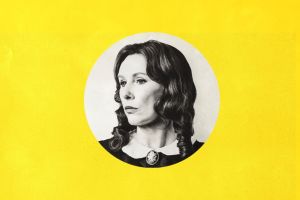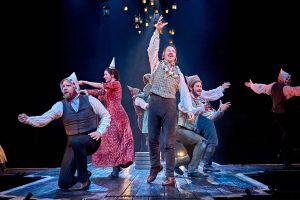Curve Leicester's Nikolai Foster on musicals – 'what's not to love?'
As part of his week guest editing at WhatsOnStage, Nikolai Foster reflects on the musical form and its place in British theatre
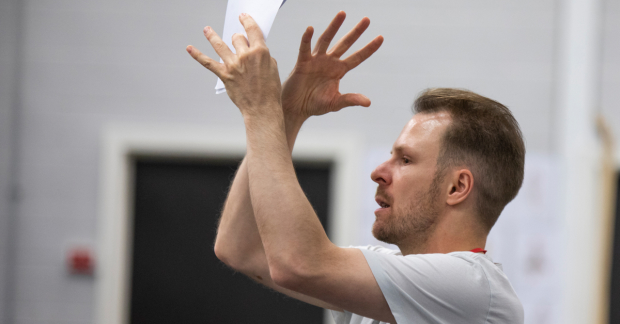
© Ellie Kurttz
"Good musicals are popular, you know, they're a great way to state important ideas, things that can really make a difference" – Frank, Sondheim's Merrily We Roll Along
Musicals are cool. After years of being consigned to the cultural sidelines, theatre makers and critics have finally caught up with the knowledge audiences have shared for decades: the musical is one of the most exhilarating, audacious and provocative forms of theatre. The musical cuts across cultural boundaries and will become increasingly important in our continued efforts to ensure theatre is truly egalitarian and accessible to all.
My introduction to musicals was after having my head flushed down a toilet and being chased down a corridor at secondary school, where the bullies screamed "queer" at me. It was after-school hours and the place was deserted. I didn't want to get beaten up again and was desperately wondering where I could escape – suddenly a poster for Oliver! auditions flashed ahead of me. The time – now! The place – the music room! I succeeded in outrunning my aggressors and exploded into the music room, where a sea of faces turned to see what was interrupting the music rehearsal for "Who Will Buy?" Without thought, I announced I was there to audition and so began a fascination and love affair with musical theatre which continues to this day.
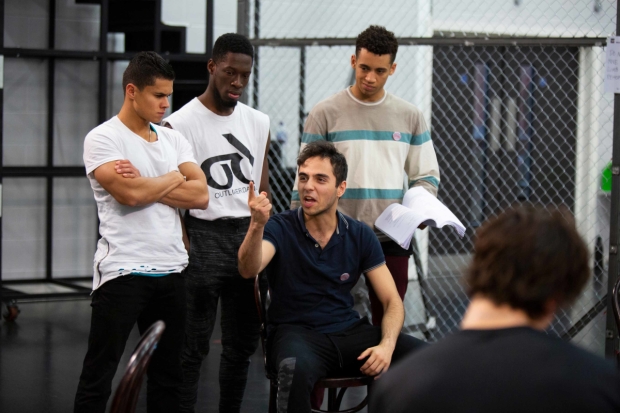
© Ellie Kurttz
I was fortunate to go to a secondary modern at a time when teachers were free to bend and change the curriculum to suit the needs of a class and truly share knowledge and enthusiasm for their respective subjects. Though none of us had much money, theatre visits were regular and consequently unremarkable; we saw everything from RSC shows in sports halls, anarchic productions of classic plays by Northern Broadsides, theatre in education companies visiting our school and even trips to West End musicals, organised by the PE teacher! There were no distinctions between plays, musicals or dance – as long as it was exhilarating theatre, we were hooked.
It was only when I started working professionally in theatre I started to realise many folk around me considered the musical a secondary art form and was often looked down on by theatremakers and those gatekeepers in authority. As I trained at drama school and began my first steps into the profession (working predominantly on plays), I kept my love affair secret.
Indeed, after making my directorial debut with A Chorus Line at Sheffield Crucible, a preeminent producer told me I would never work for them, as they only did plays. I found myself barricaded in a box which read "musicals only". This was fine for a time, as I love musicals and they are by far the most complex and challenging projects to work on, but I also had a passion for new writing and plays from the established canon.
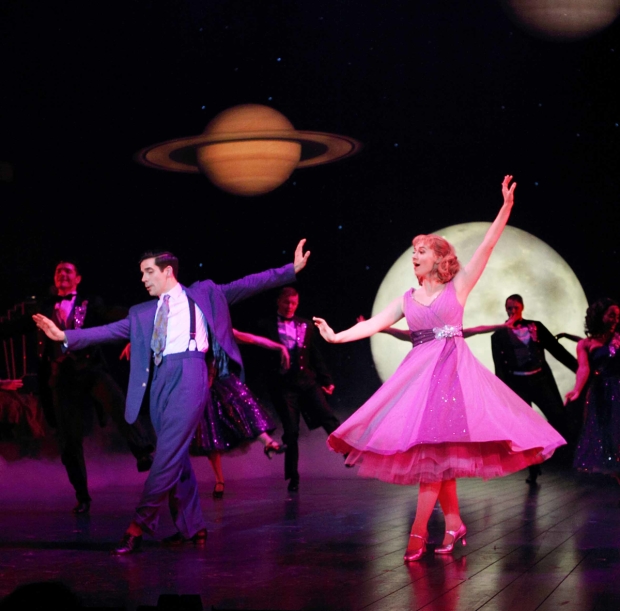
© Catherine Ashmore
Theatre makers and shakers talk of theatre being egalitarian and open to all, but until we entirely banish the snobbery and passive disdain for musicals, we will never truly fulfill our shared ambitions. Musicals are popular and bring diverse audiences and skillsets together. Furthermore, I often talk to musical theatre performers who have been told they can't audition for plays or television because "they do musicals". The skills and ability involved in performing in a musical are extensive: From learning complex musical harmonies, to the uncompromising demands of a myriad of dance styles, and ultimately, making all of this extraordinary human endeavour appear natural and spontaneous each night. Our West Side Story company are some of the most intelligent, politically astute, intuitive, imaginative and compassionate actors we have ever worked with at Curve. Seeing them tackle Shakespeare, a new play or comedy would be equally thrilling, I have no doubt.
Musicals are the future. Watching Dear Evan Hansen last week, I was surrounded by people much younger than me, fully representative of our pluralist society. At the interval, I huddled with friends on the cold street outside and we vigorously debated what we were watching. Everything was positive, but we all had opposing views and the discussion was both nuanced and playfully combative. I realised after watching Fun Home, Come From Away, Everybody's Talking About Jamie, The Band's Visit and Hamilton that similar conversations had been when seeing those productions: there's something about musicals that really does fire the imagination and is inspiring future generations.
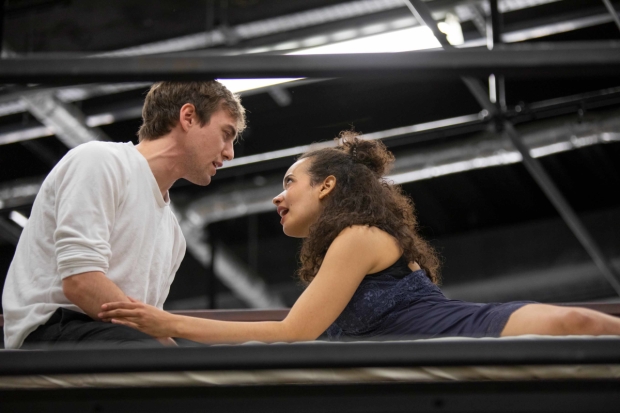
© Ellie Kurttz
As the creators of the greatest American art form – the musical – the Americans have now developed a structured system which means there is a constant pipeline of new musicals in development, at workshop stage and arriving onstage. And the hunger from audiences to embrace this work on Broadway is clear, with many new musicals becoming internationally-recognised brands. We are a little way off creating a similar model here in the UK, but the appetite certainly exists, so too the writing talent. But writers need time and space to develop ideas, fail and try again. Until we have a more concrete infrastructure in place, it will continue to be happenstance as to which musicals take flight. No size fits all and each musical takes its own path and requires its own unique development.
When I arrived at Curve five years ago, Fiona Allan, Paul Kerryson and Chris Stafford were working hard with writers Pippa Cleary and Jake Brunger on The Secret Diary of Adrian Mole. The show had already been in development for two years and seven years later, it has just ended a successful London season. We are now developing a number of new musicals at Curve, both from existing material and original sources; some will take as long as Adrian did to reach the stage and others will have much shorter gestation periods. Each one will be allowed to find its own route.
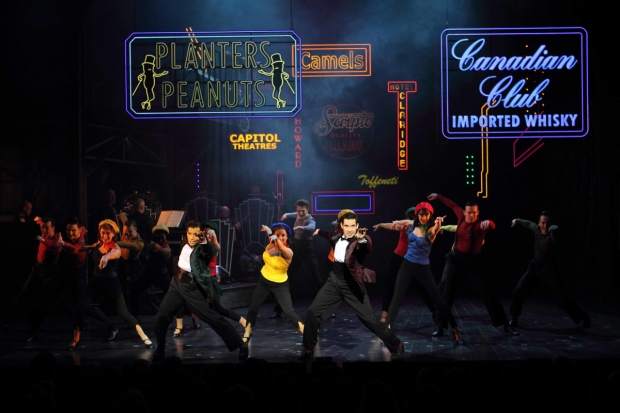
© Catherine Ashmroe
We are currently rehearsing two Made at Curve musicals – Irving Berlin's White Christmas is in technical rehearsals at the Dominion Theatre and West Side Story is in its final week of rehearsals in Leicester. Both productions fully embrace and celebrate the musical art form and bring together vast numbers of actors, musicians, production staff and creatives to bring these epic shows to the stage.
As Sondheim so passionately asserts in his great paean to theatre Merrily We Roll Along, the musical form has much to say about our communities and the world around us. White Christmas is a story of soldiers returning from war into the rapidly-changing society of 1950s America and how a group of theatre people come together to revive the spirits (and fortunes) of their old army General. It is a story of women forging their own path in the post-war booming American society, comradeship, collaboration and the uniquely transformative power of live theatre.
And West Side Story's focus on racism, immigration and young people feeling ostracised in a rapidly changing society, has (sadly) never seemed more relevant or connected to our times. I can't think of one musical from the existing repertoire or a successful newly arrived musical that doesn't have something to say about the world we live in today and offers insight into the human condition. The great musicals challenge, inspire and entertain in equal measure – what's not to love?














